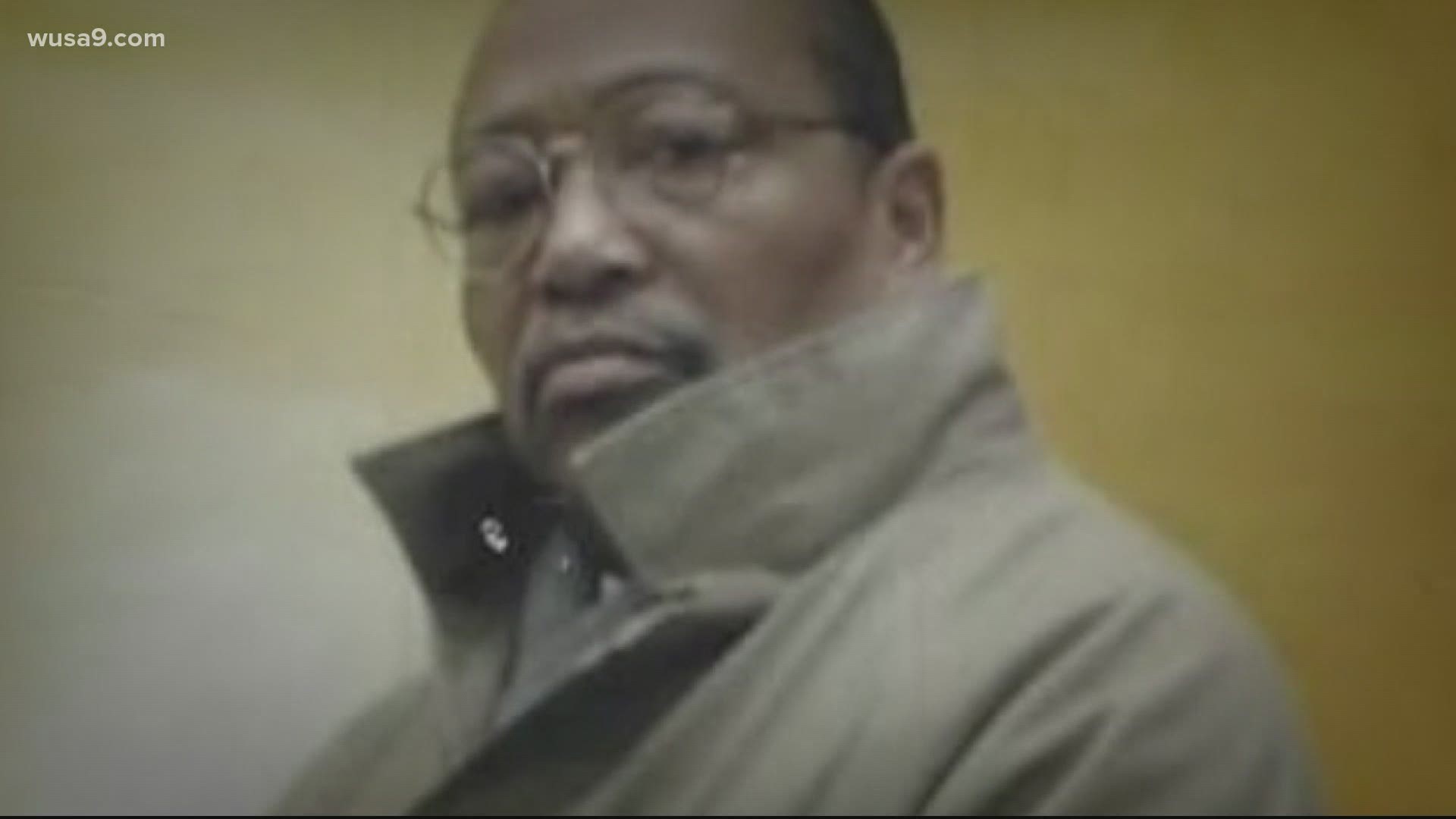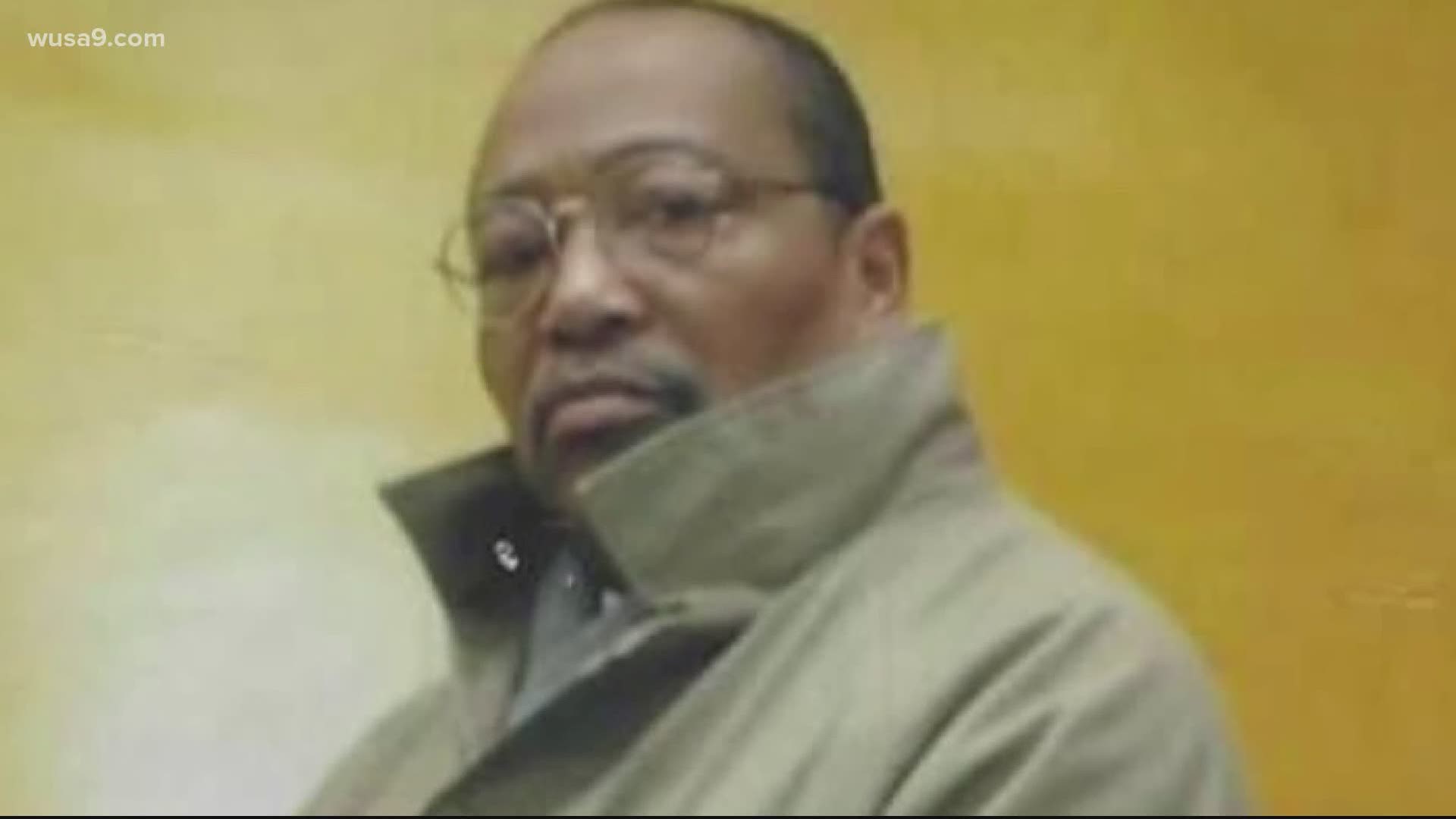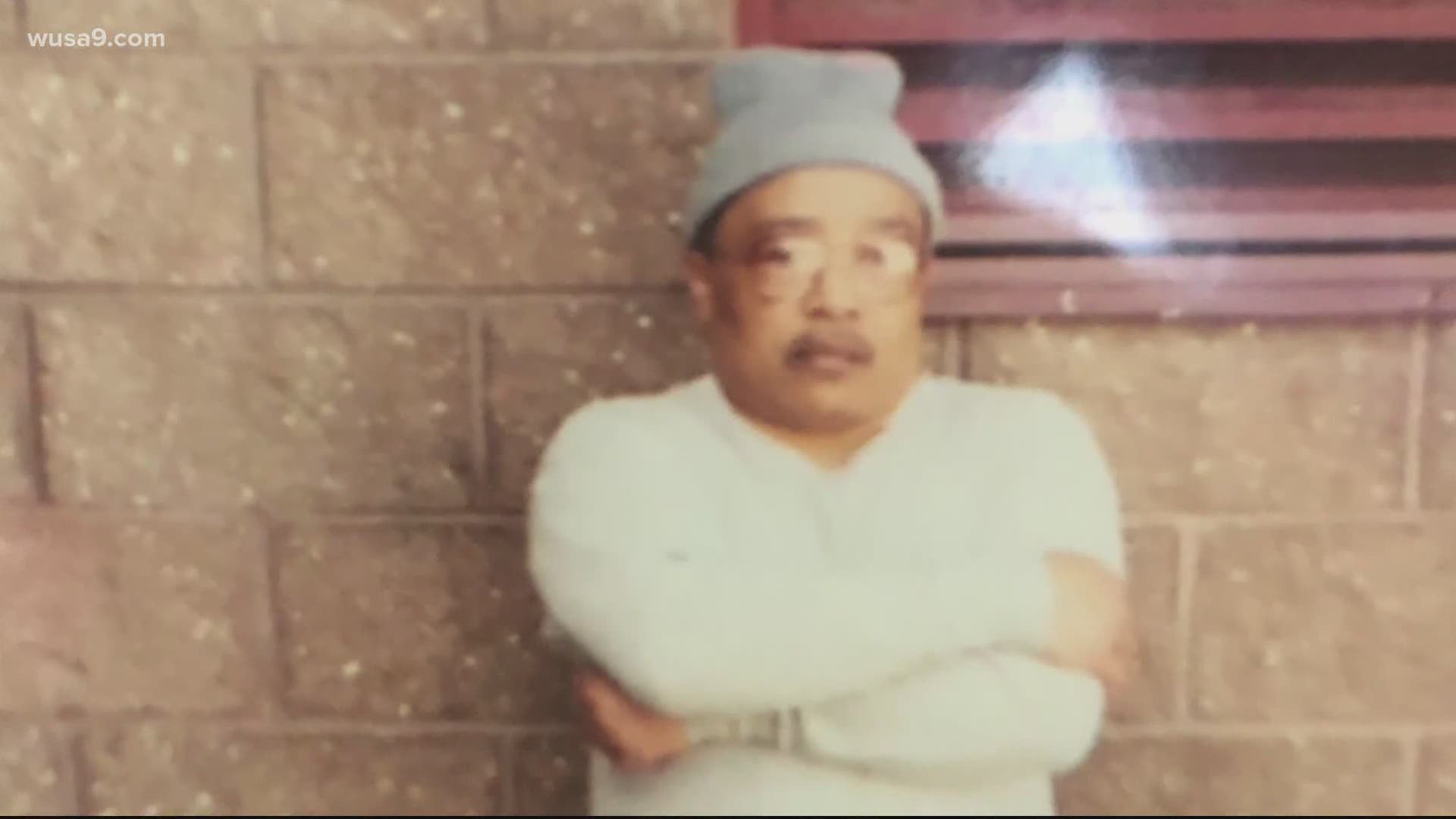WASHINGTON — One hundred seventy five days after a D.C. father died of coronavirus in federal custody, Fabian Tinsley’s family still has no idea where his body is stored, how they’ll be able to claim it, or when they’ll be able to bring him home.
Tinsley’s family described the final chapter of the 67-year-old’s life as a deeply difficult period for the District native, who relatives said, once served in the U.S. Army. Tinsley died in April as an inmate at the Butner Federal Correctional Complex in Butner, N.C., nearing the end of his sentence for armed kidnapping and assault.
“My brother's a veteran, he was in the service, and they gave him an honorable discharge,” Reginald Tinsley said. “He deserves more than this.”
But members of the Tinsley Family said they haven’t been able to bury the man in the D.C. area, and illustrated exasperation with a prolonged process concerning the U.S. Bureau of Prisons.
“They haven’t told me anything,” Reginald said. “We feel lost as a family. It’s damaging us.”
It was 113 days after Tinsley died of COVID-19 that federal officials first contacted his family, informing them of what relatives learned through a bad feeling, Google, and a North Carolina local news report.
Tinsley’s loved ones hadn’t heard from him in months. It was simply an undercurrent of unease in August that set in motion urgent attempts to check in on him.
An initial phone call to the prison ended when staff members reported the inmate was no longer in their custody. When Tinsley’s niece went online to review his incarceration record, “deceased” read as the final detail underneath his name.
“He was a good person. I mean, as far as what he did, out in the street or whatever the case may be, he was a family person,” Regina February said. “I understood him like he was my father.”
Local media in North Carolina reported an April news release from the prison, listing Tinsley as the fifth inmate to die from COVID-19 in the prison.
“On April 6, 2020, inmate Fabian Tinsley, went into respiratory failure at the Federal Correctional Institution (FCI) Butner I, in Butner, North Carolina,” the release read. “He was evaluated by institutional medical staff and transported to a local hospital for further treatment and evaluation.”
While at the hospital outside the prison walls, Tinsley tested positive for COVID-19. He was placed on a ventilator, and died 10 days later.
“On Thursday, April 16, 2020, Mr. Tinsley, who had long-term, pre-existing medical conditions which the CDC lists as risk factors for developing more severe COVID-19 disease, was pronounced dead by hospital staff,” the bureau said.
The Tinsley family saw the information in a web article posted by the CBS News affiliate in Raleigh, leading them to demand an explanation from federal officials. His relatives are now unsure if they can afford the expenses to bury him at home, and have set up a GoFundMe page.
“He was still a human being, part of our family,” February said. “He deserves some dignity, for us, and for the generation of nieces and nephews he never met.”



